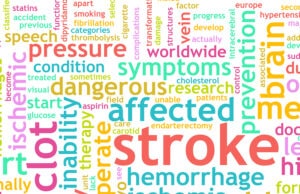What to Do After a Senior Has a Stroke
A stroke is one of the most critical events in the lives of the elderly. A stroke is defined as a sudden disruption of the blood supply to the brain. A brain attack is not the same thing as a heart attack. A stroke is caused by an interruption of blood supply to the brain due to a clot due to the rupture of a blood vessel or bleeding in the brain.
The majority of strokes are preventable. Most strokes are caused by cigarette smoking, drinking, high cholesterol, high blood pressure, obesity, diabetes, or heart disease. Of course, there are strokes caused by genetic factors. Nobody is sure why some people are prone to strokes, but genetics are thought to play a role in this.
What is a Stroke?

Senior Home Care Darby, PA: Strokes and Seniors
The American Stroke Association defines a stroke as “a disruption in the blood supply to the brain.” This disruption can cause brain cells to die within minutes if blood flow is not restored. It is critical to get medical attention right away.
There are two types of strokes: ischemic and hemorrhagic. Ischemic strokes are caused by blocked arteries in the brain. When the arteries are blocked, blood cannot flow through them. The brain then receives less oxygen than it needs to function properly, which can cause brain damage. Hemorrhagic strokes happen when a blood vessel ruptures and bleeds into the brain.
Signs of Stroke
If your senior is in immediate danger of having a stroke, they will likely experience an aura, or warning signs before the stroke. These signs can be in the form of a sudden, unusual sensation or numbness in the face, arm, or leg. Some people may experience difficulty with speaking, seeing, or walking.
If your senior experience any of these things, they should seek medical attention immediately. A stroke is a medical emergency.
The best way to prevent a stroke is to seek medical attention immediately if your senior notices any of the warning signs.
How to Help a Senior Who Has Had a Stroke
The first step in helping a senior who has had a stroke is to call 911. Stay calm and reassure them.
Help them to sit or lie down if possible. Make sure they are breathing and that there is no fluid or vomit in their mouth.
If they can, ask them to do simple tasks such as counting backward from 10, reciting the months of the year, or other everyday activities.
After a stroke, the senior will need to undergo a rehabilitation program to help them regain as much function as possible.
The treatment for strokes is evolving rapidly. The senior should know the warning signs of a stroke and seek medical attention immediately.
Senior home care will help the senior with everyday activities and will make sure everything works well at home.
Conclusion
When the senior has a stroke, it can be terrifying. Not only is it scary for them, but it is also emotionally draining on the family. It is important to know how to handle the situation so you can keep your loved one calm and safe. Senior home care will keep your loved one safe and comfortable in their own home. Give us a call today!
If you or an aging loved one are considering Senior Home Care in Darby, PA please contact the caring staff at True Direct Home Health Care today.
- How Home Health Providers Offer Education Amidst Physical Health Changes - March 5, 2024
- Spring Activities for Seniors - February 21, 2024
- How to Help an Older Loved One with Cataracts? - February 6, 2024
